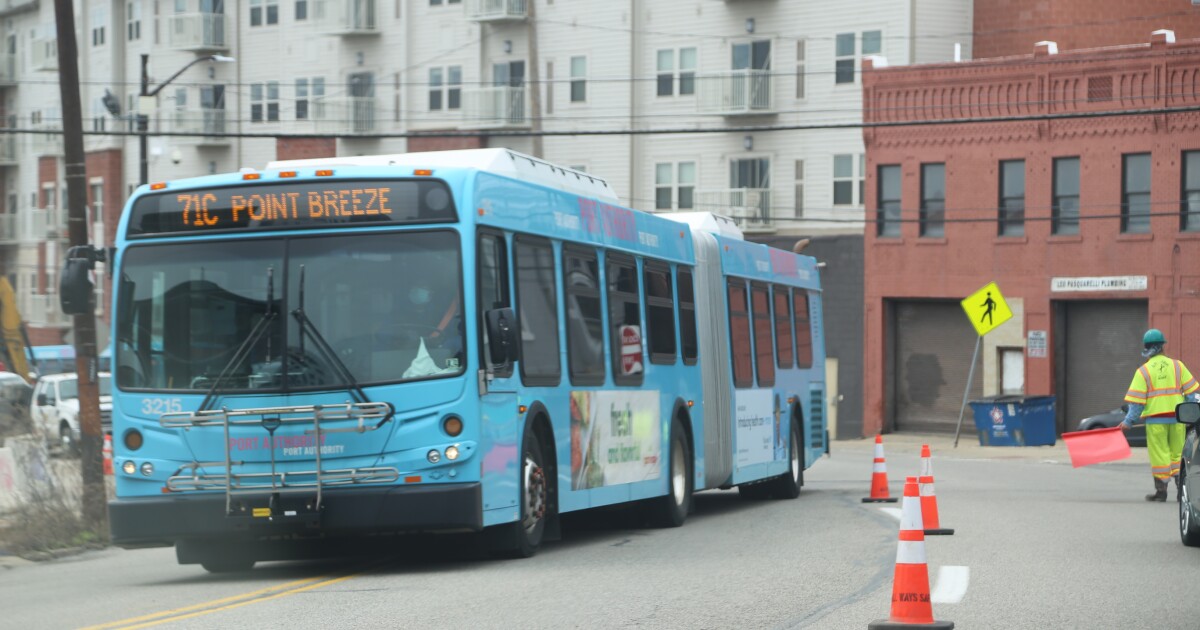Pittsburgh transit riders avoided dealing with massive cuts to service and higher fares, but the side effects are starting to shake out from Pittsburgh Regional Transit’s solution to use money from its capital budget to plug its budget deficit.
Last month, the state gave PRT permission to move nearly $107 million in state funds from its capital budget to its operating budget to cover its deficit over the next two years. But those funds were set for capital projects to repair or improve the transit system — from replacing light rail tracks to buying new buses.
“ It’s robbing Peter to pay Paul,” said Katharine Kelleman, CEO of PRT. “Using capital funding for operating expenses is not something anybody wants to do. These dollars are meant for the long term — for getting to bridge repair before replacement or replacing vehicles within their useful life. For improving shelters, for adding new port-a-potty facilities at the end of the line.”
PRT said they have a $2 billion backlog for repairs. To meet the new reduced budget, the agency has decided to cancel or delay $35.5 million of these projects, so far. The agency is reviewing all the capital projects in the pipeline and prioritizing those repairs needed for safety reasons. Instead of paying for a capital project in full in the first year of the project, they plan to provide cash as it comes up, each year.
PRT will cancel their plans to rehab the Wabash Tunnel and they won’t buy 30 new 60-foot buses that burn clean diesel fuel.
They also plan on putting off several projects slated to begin in 2026: rehabbing the Library Line will be pushed back to 2032; repairs at East Busway stations along with upgrades to the transit system aimed at helping PRT reach a zero emissions standard will be postponed until 2030; redesigning the Hamnett Station in Swissvale won’t happen until 2027; restoring the West Busway bridge is now set to begin in 2028; and server upgrades are postponed indefinitely.
PRT is evaluating additional projects and the plan is “dynamic at all times,” according to Donminika Brown, chief financial officer at PRT, at last week’s PRT committee meeting. “ What projects would move forward for safety? What are our cash flow needs? What are our community needs?”
Projects that are necessary to maintain safety and those that are immediately construction-ready will continue as planned, such as improvements to the Station Square Station.
“ We are not putting any safety programs at risk,” Kelleman said. “Everything we’re doing is still safe and secure. But again, the improvements to avoid bridge replacement take longer to get to. Rail overhead takes a little bit longer to get to. The update for our 25 year Next Transit plan gets pushed off an additional year because we don’t have the money to go into planning.”

